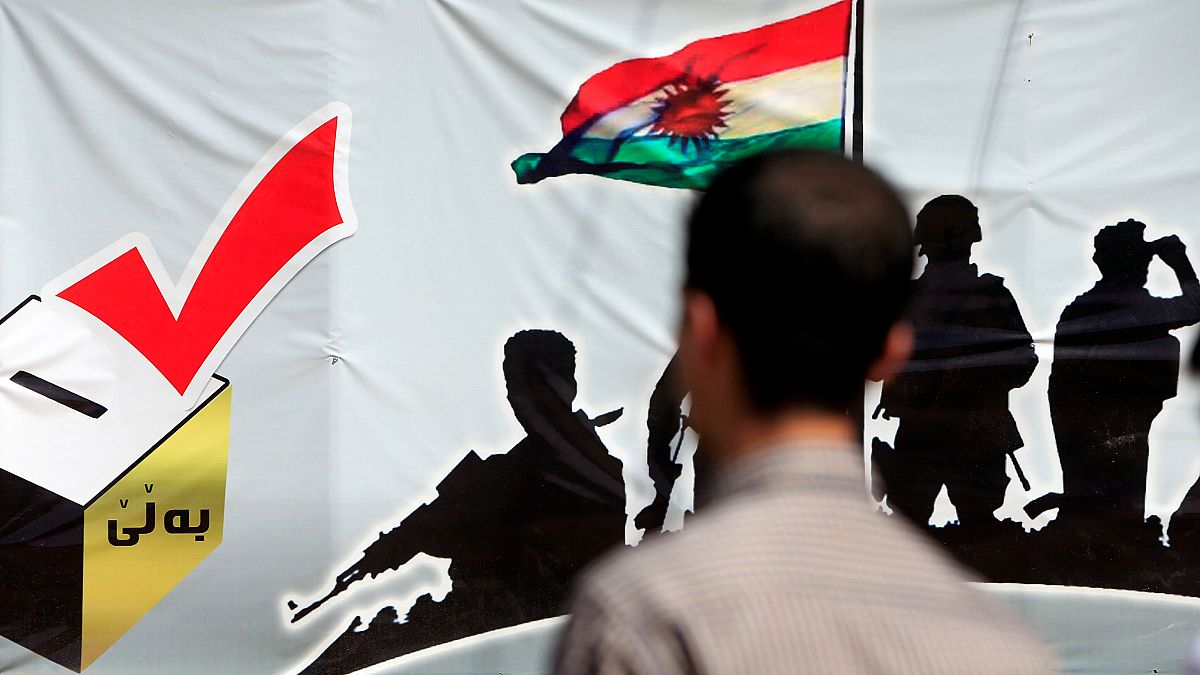Kurds in northern Iraq voted in large numbers in a referendum on independence on Monday, ignoring pressure from Baghdad, Turkey, Iran and the international community.
Kurds in northern Iraq voted in large numbers in a referendum on independence on Monday, ignoring pressure from Baghdad, Turkey, Iran and the international community.
What is the result likely to be?
The vote, organised by the Kurdish authorities, is expected to deliver a comfortable “yes” for independence, but is not binding.
However, analysts say it is designed to give Masoud Barzani, who heads the Kurdistan Regional Government (KRG), a mandate to negotiate the secession of the oil-producing country.
What was the turnout like?
High. An estimated 78% of the 5.2 million people eligible to vote did so. Final results are expected within 72 hours.
How important is the vote?
Very. For Iraqi Kurds – part of the largest ethnic group left stateless when the Ottoman empire collapsed a century ago – the referendum offered an historic opportunity despite intense international pressure to call it off.
Was there opposition to it?
Yes. Opposition simmered among the Arabs and Turkmen who live alongside the Kurds in the northern Iraqi city. Officials later ordered an overnight curfew.
Iraqi Prime Minister Haider al-Abadi ordered security services “to protect citizens being threatened and coerced” in the Kurdish region.
With 30 million ethnic Kurds scattered across the region – mainly in Iraq, Iran, Turkey and Syria – Tehran and Ankara fear the spread of separatism to their own Kurdish populations.
President Recep Tayyip Erdogan said Turkey could cut off the pipeline that carries oil from northern Iraq to the outside world, piling more pressure on the Kurds.
The Iraqi army started “major manoeuvres” with the Turkish army at the border.
Iran announced a ban on direct flights to and from Kurdistan on Sunday while Baghdad asked foreign countries to stop direct oil trading with the Kurdish region and demanded that the KRG hand over control of its international airports and border posts with Iran, Turkey and Syria.
Syria, embroiled in a devastating civil war and whose Kurds are pressing ahead with their own self-determination, rejected the referendum.
The US State Department warned the Kurds last week that “holding the referendum in disputed areas is particularly provocative and destabilising”.
